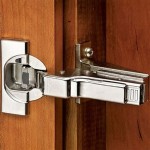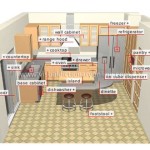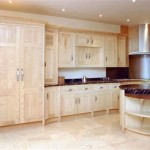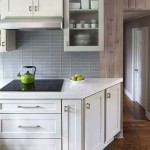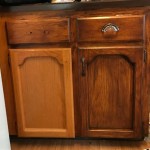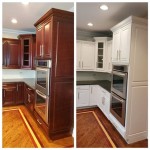Replacing Kitchen Cabinets: A Comprehensive Guide
Replacing kitchen cabinets is a significant home improvement project that can dramatically transform the heart of your home. It involves a blend of meticulous planning, careful execution, and a touch of creativity. This comprehensive guide will delve into the essential aspects of replacing kitchen cabinets, providing you with the information and insights to embark on this rewarding endeavor.
1. Planning the Replacement: Setting Your Vision
Before diving into the practical aspects of replacing kitchen cabinets, it's imperative to establish a clear vision for your project. This involves a thorough assessment of your needs, preferences, and budget. Begin by considering the following factors:
- Functionality: Determine the primary functions your kitchen cabinets will serve. Do you need ample storage space for cookware, appliances, or groceries? Or do you prioritize a streamlined aesthetic with a minimal number of cabinets?
- Style: Choose a cabinet style that complements the existing kitchen design or aligns with your desired aesthetic. Popular options include traditional, modern, farmhouse, contemporary, and transitional styles.
- Materials: Decide on the materials for your cabinets, recognizing each material's benefits and drawbacks. Common choices include wood, laminate, thermofoil, and painted finishes.
- Budget: Establish a realistic budget that accommodates the cost of materials, labor, and any additional expenses, such as hardware, countertops, and backsplash.
Once you have a clear understanding of your goals and limitations, you can proceed with the planning stages of your cabinet replacement project.
2. The Cabinet Replacement Process: Step-by-Step Guide
Replacing kitchen cabinets can be challenging, but a systematic approach can streamline the process. Here's a step-by-step guide to assist you:
Step 1: Demolition and Preparation
The initial step involves carefully removing the existing cabinets. Disconnect any plumbing or electrical fixtures attached to the cabinets. Use a pry bar or other tools to detach the cabinets from the walls and remove them from the space. Ensure proper disposal of the old cabinets.
Step 2: Cabinet Installation
Once the old cabinets are removed, you can begin installing the new ones. Start by marking the wall for the cabinet locations, ensuring they are level and plumb. Secure the cabinets to the walls with screws or brackets. If you're installing base cabinets, level them carefully and ensure they are aligned.
Step 3: Countertop and Backsplash Installation
After the cabinets are in place, you can install the countertop and backsplash. Depending on the materials chosen, the installation process will vary. Consult with a professional installer for assistance, especially if you're working with complex materials or intricate designs.
Step 4: Finishing Touches
Once the major components are installed, you can add the finishing touches. This includes installing hardware, such as cabinet knobs and pulls, along with any additional decorative elements. Take your time to ensure that everything is properly installed and aesthetically pleasing.
3. Key Considerations: Materials, Installation, and Cost
Replacing kitchen cabinets involves several important considerations that can impact the success of your project. Here are some key points to keep in mind:
Material Choices
The choice of cabinet material is crucial to the durability, aesthetics, and cost of your project. Wood cabinets offer longevity, durability, and a natural look. Laminate provides affordability and a wide variety of finishes. Thermofoil combines durability with a smooth, easy-to-clean surface.
Installation Options
Consider whether you will install the cabinets yourself or hire a professional contractor. While DIY installation can save money, it requires skill, time, and patience. Hiring a professional ensures a high-quality finish and a smooth installation process.
Budget Management
Replacing kitchen cabinets can be a significant investment, so it's essential to manage your budget efficiently. Factor in the costs of materials, labor, hardware, and any additional components required for the project. Explore options like salvaged cabinets or semi-custom cabinets for a more budget-friendly approach.

How To Install Kitchen Cabinets Diy Family Handyman

Reface Or Replace Your Kitchen Units Dream Doors

Reface Or Replace Your Kitchen Units Dream Doors

Average Cost To Replace Cabinets Forbes Home

10 Simple Ideas To Update Your Kitchen Cabinets Jenna Sue Design

How Often Do You Need To Replace Kitchen Cabinets

When Should You Replace Your Kitchen Cabinets Tops Cabinet

25 Easy Ways To Update Kitchen Cabinets

New Kitchen Units Cost Guide 2024 How Much To Replace

Should You Reface Or Replace Cabinets When Remodeling A Kitchen Degnan Design Build Remodel

